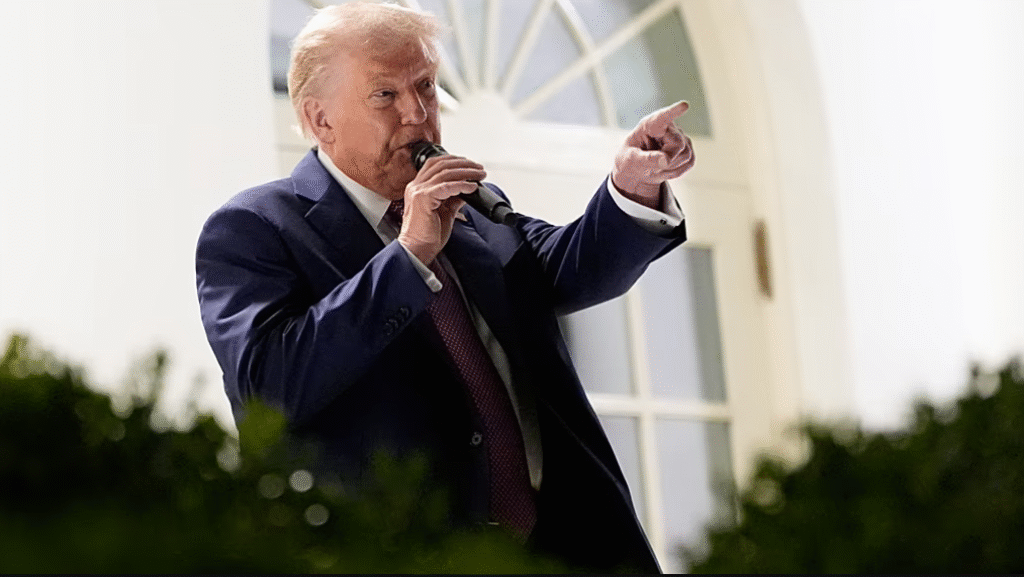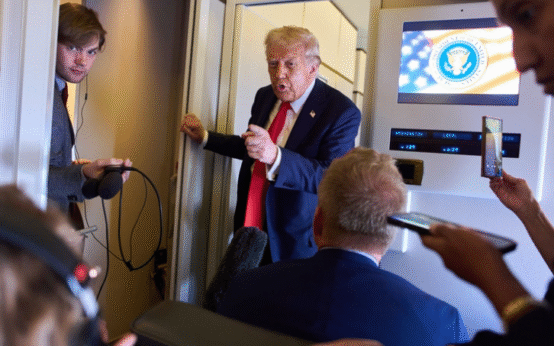European Commission slapped Google with a €2.95 billion antitrust fine, accusing it of abusing its dominance in online advertising technology. The EU found Google had unfairly favored its own ad-serving tools namely AdX and DFP over rival platforms, hurting publishers and competitors. The Commission warned that, if Google fails to address these conflicts within 60 days, it may face even stronger measures, potentially including a forced breakup or divestiture.
Section 301: Trump’s Tool for Trade Pressure
Section 301 of the Trade Act of 1974 grants the U.S. president authority to investigate and retaliate against trade practices deemed unjust or burdensome. Trump used the threat strategically: hinting he could use it as a Plan B if his broader tariffs under IEEPA International Emergency Economic Powers Act face legal stumbling blocks in the Supreme Court.

Google wasted no time defending itself. Officials called the penalty wrong and vowed to appeal. They argued the fine and proposed changes would harm European businesses by making it harder for them to monetize online content
EU, however, reiterated its commitment to applying its digital market rules fairly even when it means taking on major American tech giants. Competition Commissioner Margrethe Vestager, known for her unwavering regulatory stance, has led previous cases against Google, Apple, Amazon, and others, earning a global reputation as a fierce anti-monopoly advocate
Concern About Fines, Rules, and the DMA
The latest fine marks the fourth such penalty Google has received in Europe. Previous fines addressed abuses in comparison shopping, Android bundling, and AdSense practices These enforcement actions all stem from the EU’s core antitrust rules under Articles 101 and 102 of the Treaty on the Functioning of the EU.

Looking ahead, the Digital Markets Act represents a structural shift. It identifies gatekeeper platforms chiefly U.S. tech giants—and imposes rules against self-preferencing, data monopolies, and other anti-competitive behaviors. Companies that violate the DMA face fines of up to 10% of their global turnover
Trump’s threats come at a fragile moment for transatlantic trade. A new tariff agreement between the U.S. and EU was still in the works, aiming for mutual reductions—15% U.S. tariffs on EU goods in exchange for EU market openings. Trump’s retaliation handle threatens to undo that progress
Bigger Battle Over Digital Sovereignty
The clash is more than a dispute over adtech it’s part of a larger battle over how the internet is governed. The EU insists on safeguarding competition in the digital space, while the U.S. stresses innovation and market freedom for its tech champions.
With the EU pushing legal reforms like the DMA, we’re entering a new era where digital regulation becomes a geopolitical flashpoint.


 Trump Escalates Trade Pressure on Canada with Tariffs on Wood
Trump Escalates Trade Pressure on Canada with Tariffs on Wood  Hamas Says It Has Not Received Trump’s Plan
Hamas Says It Has Not Received Trump’s Plan  Kim Jong-un Open to Trump Meeting Without Denuclearization
Kim Jong-un Open to Trump Meeting Without Denuclearization  U.S. Envoy Reveals Depths of Trump’s Grudge with Canada
U.S. Envoy Reveals Depths of Trump’s Grudge with Canada  US judge tosses Trump’s $15 billion New York Times lawsuit
US judge tosses Trump’s $15 billion New York Times lawsuit  Trump turns crypto king but at what cost?
Trump turns crypto king but at what cost?